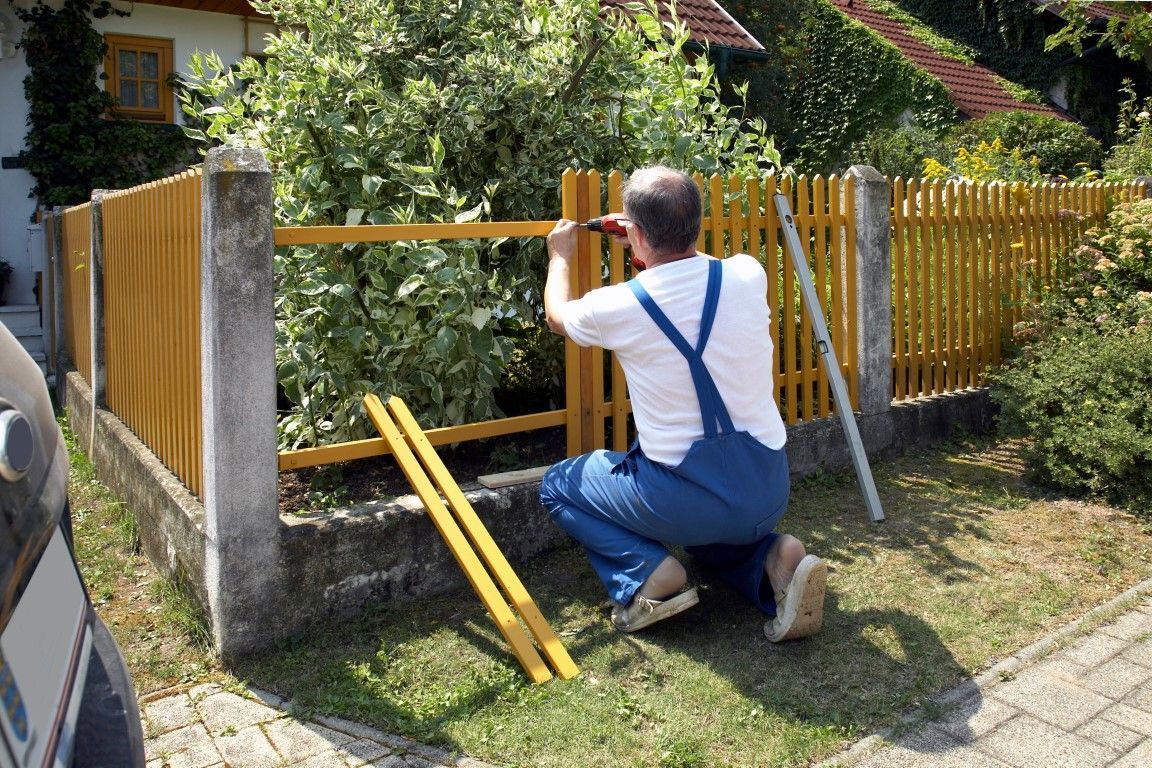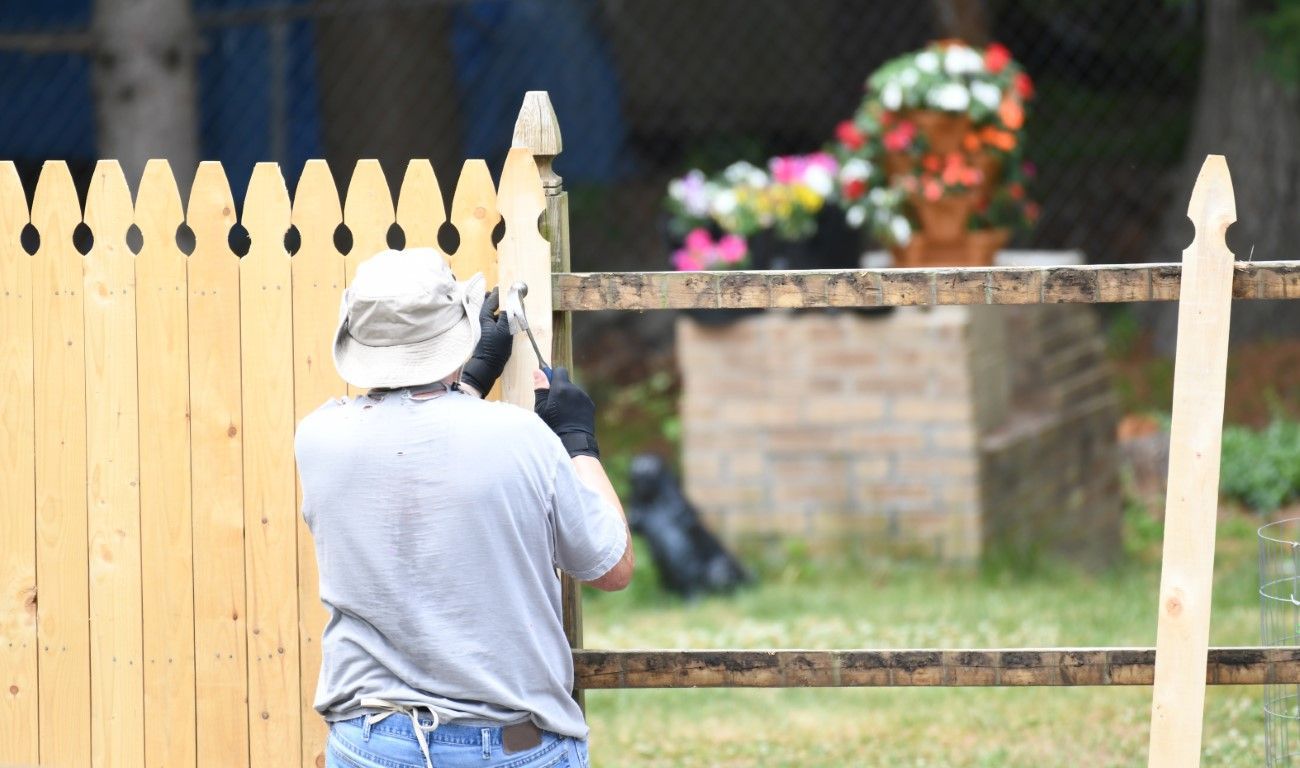El Cerrito Fence Pros
(510) 991-5025
Wood Fencing in El Cerrito CA

Wood fencing is one of the most classic and versatile choices for homeowners in El Cerrito, CA. Known for its natural beauty, strength, and privacy, wood fences can be customized in many styles to match the character of your property. Whether you’re looking for a traditional picket, a tall privacy fence, or something custom-built, wood offers a timeless look that can also provide security and functionality. However, not all wood fences are the same. The type of wood, design, and grade of construction will determine the durability and appearance of your fence.
Residential Grade Wood Fencing
Residential-grade wood fencing is ideal for typical home applications. These fences are designed for privacy, decorative appeal, and property boundaries. Popular styles include cedar or redwood privacy panels, picket fences, and lattice tops. With the right sealant and care, a residential wood fence can last many years while maintaining its natural charm.
Commercial Grade Wood Fencing
Commercial wood fencing is built with heavier posts and thicker boards to handle more wear and tear. This type of fencing is commonly used around apartment complexes, businesses, and public areas where both aesthetics and durability are important. Taller designs with reinforced framing add security, while still providing the warmth and appeal of natural wood.
Types of Wood Fencing Available
When working with a fence builder or fence contractor, one of the first decisions is what style of wood fence best fits your property. Each type of fence installation has its own strengths, and choosing the right one will help you get the best mix of privacy, durability, and appearance.
Privacy Fences
A full panel privacy fence is one of the most common requests in wood fence installation. Built tall with overlapping boards, it blocks outside views and creates a quiet, enclosed space in your yard. A professional fence contractor can build privacy fences in redwood, cedar, or pressure-treated pine, each offering different levels of durability and cost.
Picket Fences
For homeowners who want classic curb appeal, a picket fence is timeless. A fence builder can customize picket height, spacing, and top design to match your home’s character. While they don’t provide complete privacy, they’re great for marking boundaries and creating a welcoming look.
Ranch Rail and Split Rail Fences
If you need a fence installation that covers larger areas of land, such as a front yard or acreage, a ranch rail or split rail design is both practical and attractive. These styles use fewer materials, making them affordable, while still providing a sturdy barrier.
Custom Designs
Many wood fence contractors also specialize in custom layouts, combining lattice tops, decorative patterns, or mixed materials. If you’re looking for something unique, a custom wood fence installation can be tailored to your exact vision.
What Every Homeowner Should Know Before Wood Fence Installation
Before you hire a fence builder or fence contractor, there are a few key things every property owner should consider. These factors will affect the cost, lifespan, and long-term satisfaction with your new fence.
Wood Type Matters
Different woods have different strengths. Cedar and redwood are naturally resistant to rot and insects, making them premium choices for a long-lasting fence installation. Pressure-treated pine is more budget-friendly but may require extra care and sealing. An experienced fence contractor can walk you through the pros and cons of each option.
Maintenance Requirements
Unlike vinyl or chain link, wood fencing requires periodic upkeep. Staining, sealing, or painting every few years will protect against moisture and sun damage. A good fence builder can recommend the right maintenance schedule for your climate and soil conditions.
Local Rules and Property Lines
Before a fence installation begins, it’s important to confirm property boundaries and check local regulations or HOA requirements. A professional fence contractor will often handle permits and planning, saving you from headaches down the road.
Budget and Longevity
While wood fencing is often more affordable upfront compared to iron or vinyl, its lifespan depends on both the quality of installation and ongoing care. Investing in a reputable fence company for your installation ensures stronger posts, straighter lines, and fewer repairs in the future.

Different Types of Wood for Fencing
When you work with a professional fence builder or fence contractor, one of the most important choices you’ll make is the type of wood for your fence installation. Each wood species has unique qualities that affect appearance, durability, and maintenance needs. Knowing the differences will help you make a smart investment in your property.
Cedar Wood Fencing
Cedar is one of the most popular woods used by fence contractors because it naturally resists rot and insects. A cedar fence installation will give you a rich, reddish tone and a pleasant aroma that many homeowners love. Cedar is lightweight, making it easier for fence builders to install, and it holds up well against weather when properly sealed. While cedar costs more than pine, it often lasts longer with less maintenance.
Redwood Fencing
If you want a premium look, redwood is often considered the top choice for wood fence installation. Redwood is highly durable, naturally resistant to pests, and offers a deep, attractive color that can be enhanced with staining. Many fence contractors recommend redwood for homeowners who want a long-lasting, high-end fence that increases curb appeal. The downside is cost — redwood is one of the most expensive options, but its longevity and beauty often make it worth it.
Pressure-Treated Pine Fencing
For homeowners looking for a budget-friendly option, pressure-treated pine is widely used in fence installation. The wood is chemically treated to resist decay and insects, making it stronger than untreated pine. A skilled fence contractor will recommend sealing pine after installation to prevent warping and splitting. While it may not last as long as cedar or redwood, it’s a reliable and affordable choice for many property owners.
Hardwood Options
Some fence builders also work with hardwoods such as oak or teak for custom fence installations. Hardwoods are extremely strong and durable but often come at a higher price point and may require specialized installation. They’re ideal for homeowners who want a one-of-a-kind fence with exceptional toughness.
Choosing the Right Wood for Your Fence Installation
The best wood for your fence depends on your budget, the level of maintenance you’re comfortable with, and the overall style you want for your property. An experienced fence company can walk you through the options, compare costs, and help you select the wood that will deliver the best mix of beauty and long-term performance.

The Installation Process of Wood Fencing Explained
When you hire a professional fence builder or fence contractor for wood
fence installation, the process is designed to be efficient, reliable, and built to last. A trusted fence company will start by walking your property and developing a clear plan for your fence installation, making sure the layout fits your yard and meets your goals for privacy, security, or curb appeal. Once the design is finalized, the contractor marks post positions and sets them securely in concrete, which is the foundation of any quality wood fence. From there, the fence installation crew attaches rails, panels, or pickets with precision to keep everything straight, level, and durable. A good fence builder pays attention to details such as gate alignment, board spacing, and proper sealing to ensure the finished product not only looks great but also withstands years of weather and everyday use. The job ends with a full inspection, confirming your fence installation is solid, secure, and ready to enhance your property. Working with an experienced wood fence contractor means you’ll get a fence built the right way the first time, saving you from costly repairs and giving you peace of mind.
Site Assessment and Planning
Before installation begins, we conduct a thorough site inspection. This step involves measuring the property, checking for any obstacles, and ensuring the fence layout aligns with your needs. We also verify local zoning laws and property boundaries to prevent any legal issues. Planning is key to avoiding unexpected delays and ensuring the fence is installed correctly the first time.
Marking and Post Installation
Once the plan is finalized, we mark the fence line to ensure proper alignment. Next, we dig holes for the fence posts at evenly spaced intervals. The depth and spacing of these holes depend on the fence height and local soil conditions. We then set the posts in concrete to provide a stable foundation. This step is crucial for maintaining the fence’s strength and longevity.
Panel Attachment and Alignment
After the posts have set, we attach the wood fence panels. These panels are securely fastened to the posts, ensuring they are level and evenly spaced. During this phase, we make adjustments to maintain a straight, uniform appearance. Gates , if included, are also installed with sturdy hinges and latches to ensure smooth operation.
Final Inspection and Cleanup
The last step involves a thorough inspection to confirm the fence is secure, level, and meets all specifications. We check the stability of the posts, ensure proper gate function, and make any necessary adjustments. Once everything is in place, we clean up the work area, removing any debris or excess materials. Our goal is to leave your property looking neat with a professionally installed wood fence ready to enhance your space.
If you’re looking for high-quality wood fencing with a hassle-free installation process, our team is here to help. We handle every step with precision and care, ensuring a durable and visually appealing fence. Contact us today to get started on your fencing project!